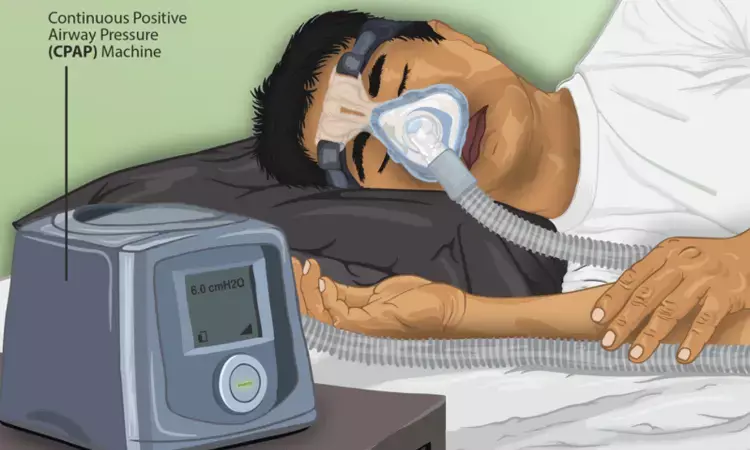- Home
- Medical news & Guidelines
- Anesthesiology
- Cardiology and CTVS
- Critical Care
- Dentistry
- Dermatology
- Diabetes and Endocrinology
- ENT
- Gastroenterology
- Medicine
- Nephrology
- Neurology
- Obstretics-Gynaecology
- Oncology
- Ophthalmology
- Orthopaedics
- Pediatrics-Neonatology
- Psychiatry
- Pulmonology
- Radiology
- Surgery
- Urology
- Laboratory Medicine
- Diet
- Nursing
- Paramedical
- Physiotherapy
- Health news
- Fact Check
- Bone Health Fact Check
- Brain Health Fact Check
- Cancer Related Fact Check
- Child Care Fact Check
- Dental and oral health fact check
- Diabetes and metabolic health fact check
- Diet and Nutrition Fact Check
- Eye and ENT Care Fact Check
- Fitness fact check
- Gut health fact check
- Heart health fact check
- Kidney health fact check
- Medical education fact check
- Men's health fact check
- Respiratory fact check
- Skin and hair care fact check
- Vaccine and Immunization fact check
- Women's health fact check
- AYUSH
- State News
- Andaman and Nicobar Islands
- Andhra Pradesh
- Arunachal Pradesh
- Assam
- Bihar
- Chandigarh
- Chattisgarh
- Dadra and Nagar Haveli
- Daman and Diu
- Delhi
- Goa
- Gujarat
- Haryana
- Himachal Pradesh
- Jammu & Kashmir
- Jharkhand
- Karnataka
- Kerala
- Ladakh
- Lakshadweep
- Madhya Pradesh
- Maharashtra
- Manipur
- Meghalaya
- Mizoram
- Nagaland
- Odisha
- Puducherry
- Punjab
- Rajasthan
- Sikkim
- Tamil Nadu
- Telangana
- Tripura
- Uttar Pradesh
- Uttrakhand
- West Bengal
- Medical Education
- Industry
Obstructive sleep apnea tied with increased risk of CVD: Study

Obstructive sleep apnea (OSA) is independently associated with increased risk of coronary events, suggests a study published in the CHEST journal.
Currently, very limited data is available regarding the association between obstructive sleep apnea (OSA) and coronary plaque evaluated using quantitative coronary computed tomographic angiography (CCTA).
A study was conducted by a group of Chinese researchers to evaluate any associations between obstructive sleep apnea (OSA) severity-related indices and increased burden of coronary plaque.
The researchers collected cross-sectional data from a total of 692 patients who had undergone sleep monitoring and coronary computed tomographic angiography (CCTA). Out of which, 120 (17.3%) underwent polysomnography, and 572 (82.7%) underwent respiratory polygraphy. Multivariable logistic and linear regression analyses were used to investigate the associations of OSA severity-related indices with the presence, volume, and composition of plaque.
The findings of the study are as follows:
· In multivariable analyses, patients with moderate-severe OSA was more likely to have coronary plaques and plaques were more likely to contain noncalcified plaque (NCP) component and low-density NCP (LD NCP) component.
· Furthermore, apnea-hypopnea index (AHI) and oxygen desaturation index (ODI) as continuous variables were both associated with the presence of plaque, NCP, and LD NCP.
· Multivariable linear regression models demonstrated that moderate-severe OSA was associated with NCP volume and LD NCP volume.
· Moreover, AHI, ODI, and percent of the night time with oxygen saturation below 90% (T90) were all significant predictors of LD NCP volume. Compared to those with no or mild OSA, patients with severe OSA had a significantly higher total plaque volume NCP volume and LD NCP volume.
The researchers concluded that Obstructive sleep apnea (OSA) was independently associated with the presence and increased burden of coronary plaque, which suggests an increased risk of coronary events.
Reference:
Association between Obstructive Sleep Apnea and Quantitative Atherosclerotic Plaque Burden: A Coronary Computed Tomographic Angiography Study
Dr. Shravani Dali has completed her BDS from Pravara institute of medical sciences, loni. Following which she extensively worked in the healthcare sector for 2+ years. She has been actively involved in writing blogs in field of health and wellness. Currently she is pursuing her Masters of public health-health administration from Tata institute of social sciences. She can be contacted at editorial@medicaldialogues.in.
Dr Kamal Kant Kohli-MBBS, DTCD- a chest specialist with more than 30 years of practice and a flair for writing clinical articles, Dr Kamal Kant Kohli joined Medical Dialogues as a Chief Editor of Medical News. Besides writing articles, as an editor, he proofreads and verifies all the medical content published on Medical Dialogues including those coming from journals, studies,medical conferences,guidelines etc. Email: drkohli@medicaldialogues.in. Contact no. 011-43720751


